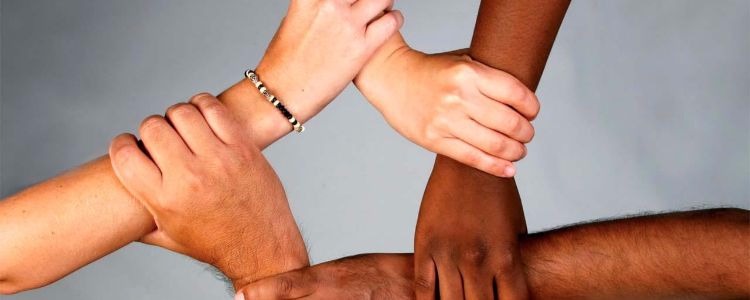5 Important Takeaways from Our Marginalized Voices #NEDAwareness Chat
Last Tuesday, we hosted a #NEDAwareness Twitter chat to hear from marginalized members of the body positive and pro-recovery community. The goal of the chat was to gain insight into how food, exercise, and body image issues impact different people in different ways and emphasize the necessity of creating inclusive communities. Here are some of the most important messages from the chat:
1. EATING DISORDERS CAN IMPACT ANYONE.
Each of our panelists made a point to highlight that eating disorders do not discriminate. While there may be a stereotype of who struggles with food, body or exercise issues, the reality is they come in all shapes, sizes, colors, religions, ethnicities, genders, sexual orientations, etc.
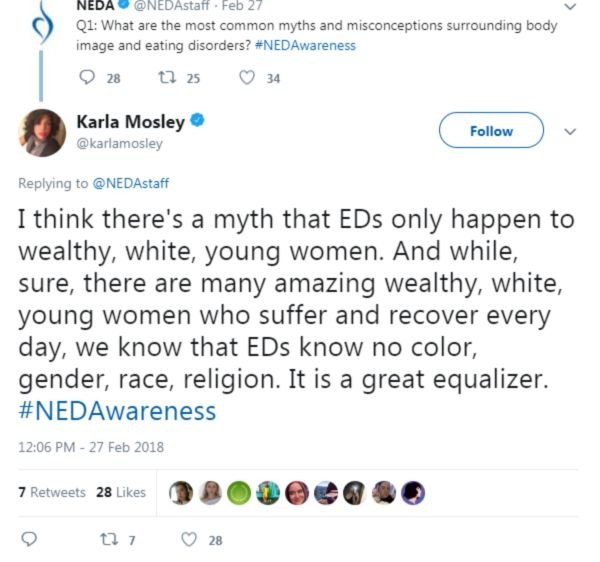
2. GETTING TREATMENT CAN BE ESPECIALLY DIFFICULT FOR MEMBERS OF MARGINALIZED COMMUNITIES.
While many people have a difficult time seeking out treatment and eventually finding the right place to get it, these issues can be exacerbated by other influencing factors. For example, culture plays a huge role on how mental health is dealt with as a whole so backgrounds can contribute to how mental health is viewed as a whole. Disabilities also play a role since there are even more preconceived notions about the capabilities of a members of that community. Finally, members of the LGBTQ community may face unique challenges, especially when it comes to discrimination in inpatient programs.
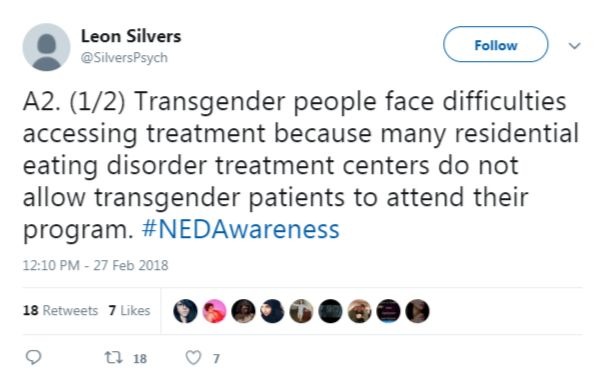
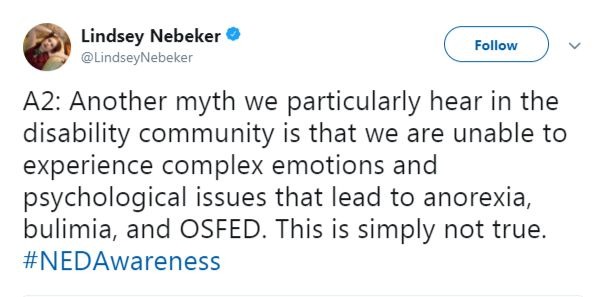
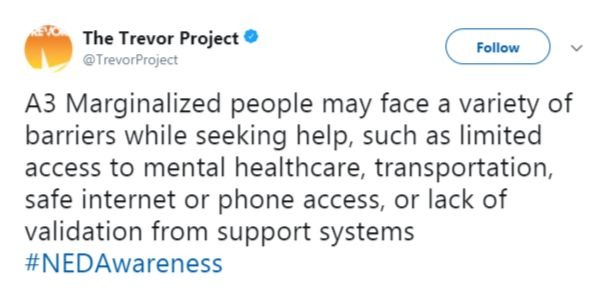
3. If a marginalized community member does find a way to get treatment, it’s unlikely their treatment provider will be able to fully relate.
It is certainly a step in the direction of recovery for a marginalized community member to be able to receive treatment. Unfortunately, not all treatment providers are adept at what these community members need since most are not members of the groups themselves. This discrepancy in the identities of treatment providers shows a clear spot for future improvement.
4. Allies with privilege should open doors for marginalized people.
While everyone’s voice may tell a different story, each story is valuable and can bring something useful to the recovery community. For marginalized community members, sharing their experiences is crucial in shedding a light on the specific issues they face. Non-marginalized community members play a pivotal role as a well as it is their job to use their privilege and help advocate for others.
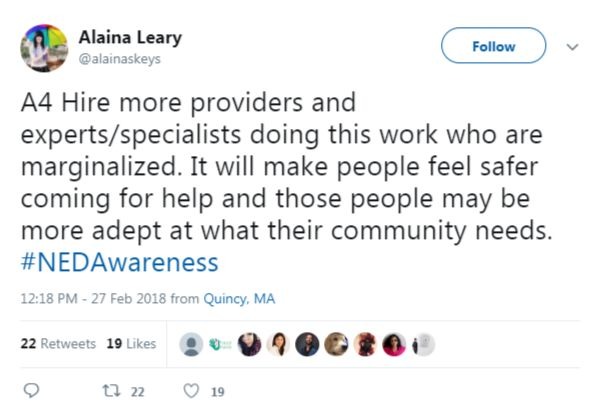
5. There are resources available.
After delving deeper into the struggles of marginalized community members, recovery may seem even more difficult. However, just like for any other person seeking recovery, there is help out there. Whether these resources come in the form of a Twitter chat to express personal struggle or a chat with a trained NEDA volunteer, recovery is possible and it is worth it.
For recovery resources and treatment options, please visit our help and support page. If you or someone you know is struggling with an eating disorder, call ANAD’s Helpline at: (888) 375-7767 or the National Alliance of Eating Disorders Helpline at: (866) 662-1235.
If you are thinking about suicide, call or text the National Suicide Prevention Lifeline at 988. In crisis situations, text “NEDA” to 741741 to be connected with a trained volunteer from the Crisis Text Line.


